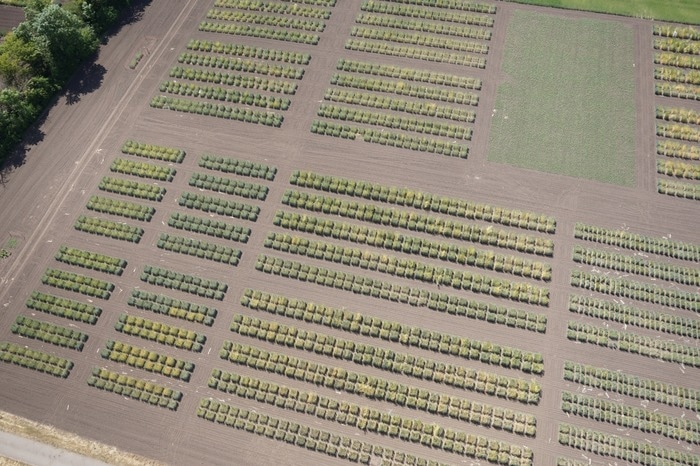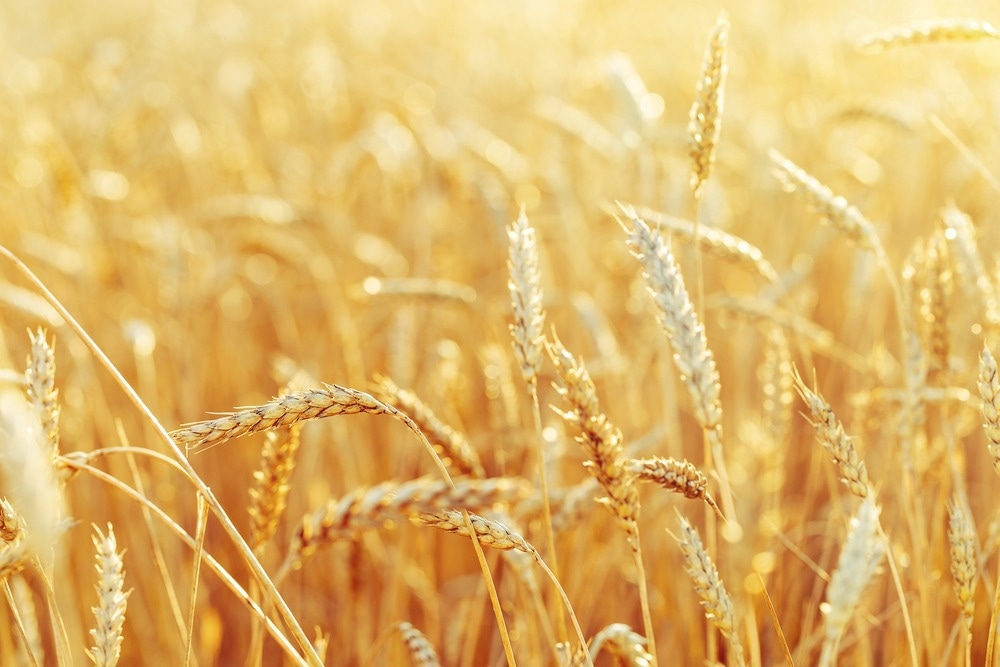Reviewed by Danielle Ellis, B.Sc.Oct 5 2022
IPK Leibniz Institute was able to test its vast collection of old wheat varieties for their yield performance and resistance to yellow rust not only in the lab but also in field trials. This was possible due to the continued funding of the research over six years by the Federal Ministry of Education and Research.
 In addition to the almost 9,000 winter wheat accessions, the scientists also grew elite varieties in the trial field and investigated resistance to yellow rust, among other traits. Image Credit: IPK Leibniz Institute/ C. Martin.
In addition to the almost 9,000 winter wheat accessions, the scientists also grew elite varieties in the trial field and investigated resistance to yellow rust, among other traits. Image Credit: IPK Leibniz Institute/ C. Martin.
This required a logistical masterstroke from all project participants and many innovative approaches to evaluate the potential of the old varieties without disruptive effects.”
Dr Albert Schulthess, Study First Author, Leibniz Institute of Plant Genetics and Crop Plant Research
To evaluate yield potential, old varieties were crossed, for instance, with adapted elite varieties. Only then did the old types’ yield potential become apparent.
The investigators created bridging lines for wheat breeding by crossing promising old varieties with current varieties. The scientists were taken aback by the performance of the progeny.
We observed higher yields in some bridging lines as compared to important current elite varieties.”
Dr Albert Schulthess, Study First Author, Leibniz Institute of Plant Genetics and Crop Plant Research
Dr. Albert Schulthess is a scientist in the research group “Quantitative Genetics.”
Professor Dr. Jochen Reif, consortium coordinator and head of the research team, is certain that the collaboration of the two breeding companies would expand the biodiversity of the elite pool by utilizing a new valuable genetic variety of the bridge lines.

Image Credit: YRABOTA/Shutterstock.com
Dr. Jochen Reif adds, “This is of great importance to tackle the huge problems that climate change poses to agriculture.”
But that was not the bottom of it. The findings of this study enable a significant step toward farming with less or no pesticide use.
Through the comprehensive sequencing of old and new varieties in combination with the valuable field data, we were able to identify possible new gene variants for resistance to yellow rust infestation.”
Dr Albert Schulthess, Study First Author, Leibniz Institute of Plant Genetics and Crop Plant Research
This would not have been feasible without the deciphering of the wheat genome, which was led by the IPK Leibniz Institute.
Dr. Jochen Reif states, “With the new genome regions we discovered in a few old varieties, we can diversify the immune system of wheat.”
Even before new resistance genes can be used in plant production, there are still a lot of obstacles to be addressed. For instance, it is essential to verify and incorporate the resistance genes into the background of elite lines. Ideally, this would also lead to a better understanding of the defense response’s characteristics.
This would allow for the long-term use of the new sources of resistance. Professor Dr. Jochen Reif is delighted that the project’s extension has garnered favorable feedback and has been guaranteed funding for the following three years.
Source:
Journal reference:
Schulthess, A. W., et al. (2022) Genomics-informed prebreeding unlocks the diversity in genebanks for wheat improvement. Nature Genetics. doi.org/10.1038/s41588-022-01189-7.